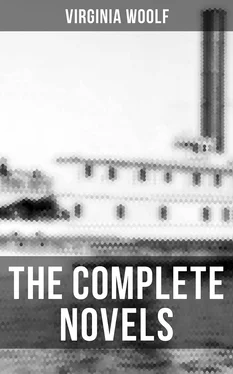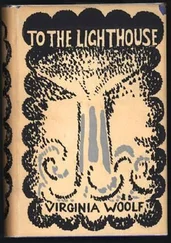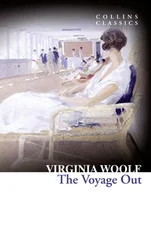So the morning wore on, and the pile of letters grew, and Mary felt, at last, that she was the center ganglion of a very fine network of nerves which fell over England, and one of these days, when she touched the heart of the system, would begin feeling and rushing together and emitting their splendid blaze of revolutionary fireworks—for some such metaphor represents what she felt about her work, when her brain had been heated by three hours of application.
Shortly before one o’clock Mr. Clacton and Mrs. Seal desisted from their labors, and the old joke about luncheon, which came out regularly at this hour, was repeated with scarcely any variation of words. Mr. Clacton patronized a vegetarian restaurant; Mrs. Seal brought sandwiches, which she ate beneath the plane-trees in Russell Square; while Mary generally went to a gaudy establishment, upholstered in red plush, near by, where, much to the vegetarian’s disapproval, you could buy steak, two inches thick, or a roast section of fowl, swimming in a pewter dish.
“The bare branches against the sky do one so much good ,” Mrs. Seal asserted, looking out into the Square.
“But one can’t lunch off trees, Sally,” said Mary.
“I confess I don’t know how you manage it, Miss Datchet,” Mr. Clacton remarked. “I should sleep all the afternoon, I know, if I took a heavy meal in the middle of the day.”
“What’s the very latest thing in literature?” Mary asked, good-humoredly pointing to the yellow-covered volume beneath Mr. Clacton’s arm, for he invariably read some new French author at lunch-time, or squeezed in a visit to a picture gallery, balancing his social work with an ardent culture of which he was secretly proud, as Mary had very soon divined.
So they parted and Mary walked away, wondering if they guessed that she really wanted to get away from them, and supposing that they had not quite reached that degree of subtlety. She bought herself an evening paper, which she read as she ate, looking over the top of it again and again at the queer people who were buying cakes or imparting their secrets, until some young woman whom she knew came in, and she called out, “Eleanor, come and sit by me,” and they finished their lunch together, parting on the strip of pavement among the different lines of traffic with a pleasant feeling that they were stepping once more into their separate places in the great and eternally moving pattern of human life.
But, instead of going straight back to the office to-day, Mary turned into the British Museum, and strolled down the gallery with the shapes of stone until she found an empty seat directly beneath the gaze of the Elgin marbles. She looked at them, and seemed, as usual, borne up on some wave of exaltation and emotion, by which her life at once became solemn and beautiful—an impression which was due as much, perhaps, to the solitude and chill and silence of the gallery as to the actual beauty of the statues. One must suppose, at least, that her emotions were not purely esthetic, because, after she had gazed at the Ulysses for a minute or two, she began to think about Ralph Denham. So secure did she feel with these silent shapes that she almost yielded to an impulse to say “I am in love with you” aloud. The presence of this immense and enduring beauty made her almost alarmingly conscious of her desire, and at the same time proud of a feeling which did not display anything like the same proportions when she was going about her daily work.
She repressed her impulse to speak aloud, and rose and wandered about rather aimlessly among the statues until she found herself in another gallery devoted to engraved obelisks and winged Assyrian bulls, and her emotion took another turn. She began to picture herself traveling with Ralph in a land where these monsters were couchant in the sand. “For,” she thought to herself, as she gazed fixedly at some information printed behind a piece of glass, “the wonderful thing about you is that you’re ready for anything; you’re not in the least conventional, like most clever men.”
And she conjured up a scene of herself on a camel’s back, in the desert, while Ralph commanded a whole tribe of natives.
“That is what you can do,” she went on, moving on to the next statue. “You always make people do what you want.”
A glow spread over her spirit, and filled her eyes with brightness. Nevertheless, before she left the Museum she was very far from saying, even in the privacy of her own mind, “I am in love with you,” and that sentence might very well never have framed itself. She was, indeed, rather annoyed with herself for having allowed such an ill-considered breach of her reserve, weakening her powers of resistance, she felt, should this impulse return again. For, as she walked along the street to her office, the force of all her customary objections to being in love with any one overcame her. She did not want to marry at all. It seemed to her that there was something amateurish in bringing love into touch with a perfectly straightforward friendship, such as hers was with Ralph, which, for two years now, had based itself upon common interests in impersonal topics, such as the housing of the poor, or the taxation of land values.
But the afternoon spirit differed intrinsically from the morning spirit. Mary found herself watching the flight of a bird, or making drawings of the branches of the plane-trees upon her blotting-paper. People came in to see Mr. Clacton on business, and a seductive smell of cigarette smoke issued from his room. Mrs. Seal wandered about with newspaper cuttings, which seemed to her either “quite splendid” or “really too bad for words.” She used to paste these into books, or send them to her friends, having first drawn a broad bar in blue pencil down the margin, a proceeding which signified equally and indistinguishably the depths of her reprobation or the heights of her approval.
About four o’clock on that same afternoon Katharine Hilbery was walking up Kingsway. The question of tea presented itself. The street lamps were being lit already, and as she stood still for a moment beneath one of them, she tried to think of some neighboring drawing-room where there would be firelight and talk congenial to her mood. That mood, owing to the spinning traffic and the evening veil of unreality, was ill-adapted to her home surroundings. Perhaps, on the whole, a shop was the best place in which to preserve this queer sense of heightened existence. At the same time she wished to talk. Remembering Mary Datchet and her repeated invitations, she crossed the road, turned into Russell Square, and peered about, seeking for numbers with a sense of adventure that was out of all proportion to the deed itself. She found herself in a dimly lighted hall, unguarded by a porter, and pushed open the first swing door. But the office-boy had never heard of Miss Datchet. Did she belong to the S.R.F.R.? Katharine shook her head with a smile of dismay. A voice from within shouted, “No. The S.G.S.—top floor.”
Katharine mounted past innumerable glass doors, with initials on them, and became steadily more and more doubtful of the wisdom of her venture. At the top she paused for a moment to breathe and collect herself. She heard the typewriter and formal professional voices inside, not belonging, she thought, to any one she had ever spoken to. She touched the bell, and the door was opened almost immediately by Mary herself. Her face had to change its expression entirely when she saw Katharine.
“You!” she exclaimed. “We thought you were the printer.” Still holding the door open, she called back, “No, Mr. Clacton, it’s not Penningtons. I should ring them up again—double three double eight, Central. Well, this is a surprise. Come in,” she added. “You’re just in time for tea.”
Читать дальше












